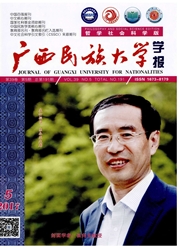

 中文摘要:
中文摘要:
借助民间收藏的礼仪文书和信仰仪式活动,考察明代官方祀典中的“三献礼”如何通过乡村耆老和地方士绅的文本传抄与仪式操演,进入到乡村宗教仪式的系统之中,并结合“神功戏”表演逐步形成清代中后期以来广西和里三王宫的“三王”神诞仪式,探讨不同层次与来源的文化元素如何通过文字、口传和仪式展演的重要作用,在戏师、歌师及普通百姓的定期参与之下,共同形塑了当地民众自身的礼仪传统与文化记忆。
 英文摘要:
英文摘要:
Based on folk collection of ceremonial documents and ritual activities, this paper explores how the "Three-offering" Ritual recorded in ritual documents of the Ming Dynasty entered the rural ritual system through private transcribing and performing under the support of local elders and native gentries. Later, the performance of "god-revere play" was added in and the "Three Kings" birthday ceremony was gradually formed in the "Three Kings" Temple in Heli, a village in northern Guangxi, during the late Qing Dynasty. In addition, the paper also discusses how various cultural elements from different levels and sources shaped the ritual tradition and cultural memory of the local mass through the regular involvement of actors and actresses, singers and common people in writings, story-telling and ritual performance.
 同期刊论文项目
同期刊论文项目
 同项目期刊论文
同项目期刊论文
 期刊信息
期刊信息
